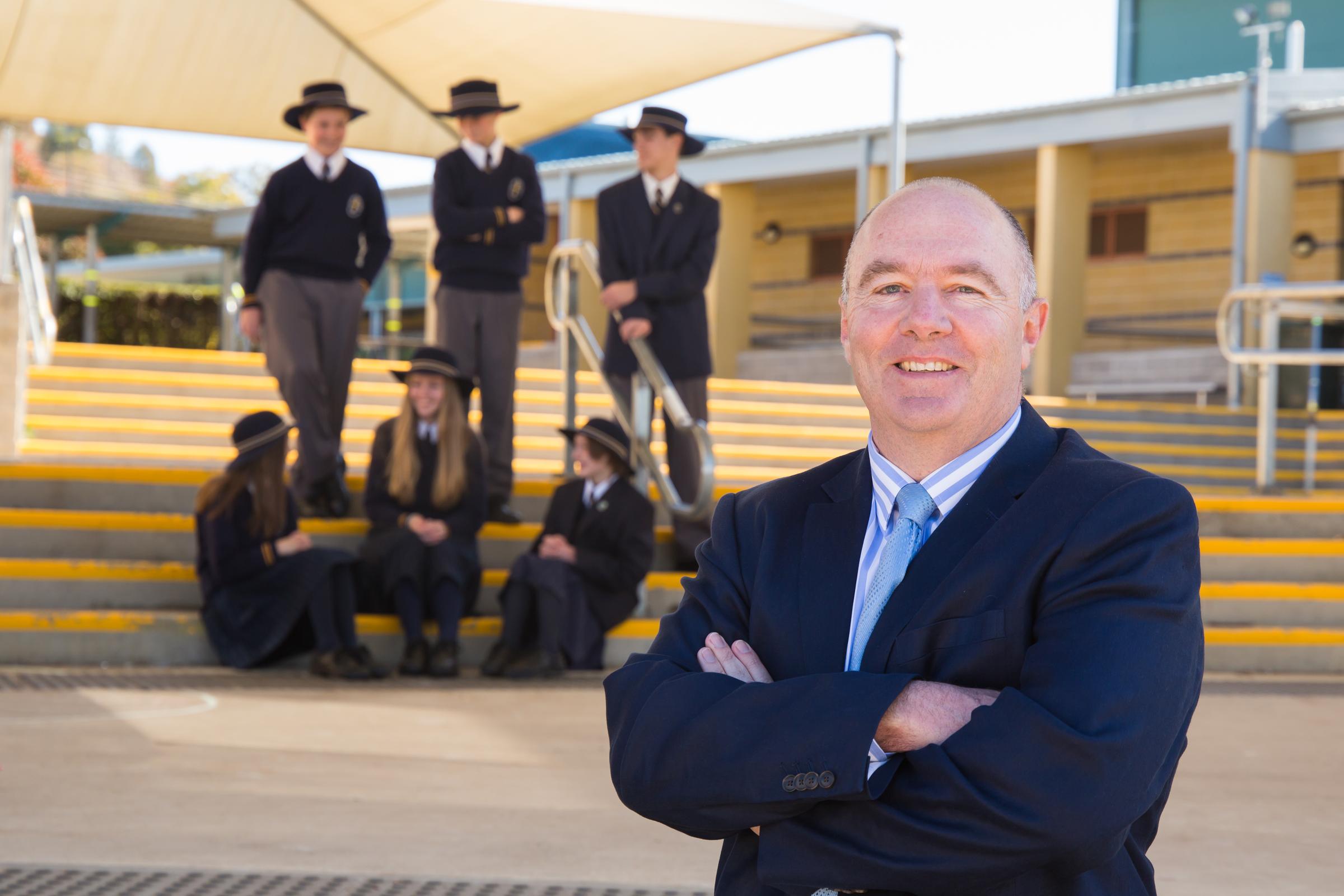Assistant Principal - Pastoral Care

Core Class Structures for 2024
One of the key tenets within the College is ‘building strong teams’. For the staff this commences with the Leadership Team, Middle Leaders, House teams, KLA teams, Admin Team, the Inclusion Team and for students, this principally exists in their classes as a learning team and, in their mentor group, comprising peers from Years 7 to 12.
The notion of ‘team’ is fostered deliberately and consistently. We know that within the context of ‘team’ that we are able to achieve much more together than we are as individuals. This is not a unique phenomenon for schools: the fields of sport, business, the military, in fact in any endeavour that takes on a challenge and requires success relies on ‘team’.
“Individual commitment to a group effort—that is what makes a team work, a company work, a society work, a civilization work.” - Vince Lombardi
“The strength of the team is each individual member. The strength of each member is the team.” - Phil Jackson
“If you want to go fast, go alone. If you want to go far, go together.” – African Proverb
Being a part of a team requires us to get on with different personalities. When students enter the adult world, they join a vast and diverse workforce. Interacting with people of all different backgrounds and mindsets can present a challenge without prior opportunities of working with different personalities, especially at a younger age. Companies are taking note of their employees’ ability to handle diversity with grace and maturity; 96 percent of major employers, according to the Century Foundation, say it is vital that employees are able to work with people from diverse backgrounds.
The presence of different personalities in the classroom allows students to consider perspectives and opinions beyond those they’ve already formed or were shaped in early life by family and friends. By presenting students with viewpoints far different from their own, it gives them the opportunity to think critically about their own beliefs and examine the world in fresh ways. “Diversity jolts us into cognitive action in ways that homogeneity simply does not.”
Research informs us that “Learning is both an internal process of assimilating new information and a social process of discussion and negotiation … knowledge is constructed through engagement both with ideas and with others.” The social experience of learning is pivotal to what and how we learn. This is why so many students who were in long term isolation during Covid lockdowns developed significant learning deficits.
Working in learning teams is a powerful way to raise learning achievement. It develops social and academic skills by encouraging collaborative behaviour and active participation in learning. Learning in teams requires our students to practise and refine negotiating, organising, and communication skills. It asks them to define issues and problems. It asks them to develop ways of solving problems, including collecting and interpreting evidence, hypothesising, testing, and re-evaluating. All of these are crucial skills for life after school - whilst pursuing further learning or job opportunities.
As a consequence of ‘team’ being so fundamental we put considerable care and thought into how we construct core classes in Years 7 to 10.
Firstly, our learning ‘teams’ are unstreamed. Classes are not organised according to ability because the best research shows that this has limited impact and for many students actually a negative impact on their learning. John Hattie (a noted academic) has said that of the practices most detrimental to learning “labelling is the most invidious, nastiest thing we do (when we invent) ways to label kids” which, in effect, is what streaming does.
Instead, classes are constructed based on our collective knowledge of students. Early Term 4 students are placed in a ‘team’ that will provide them the best opportunity to learn. Following a first draft of classes they are then displayed so that the Inclusion Team, school psychologists, Leaders of Student Care, Leaders of Learning and teaching staff are able to examine and make suggestions for what will make the best learning ‘teams’ possible.
For the first time, students in Years 8 to 10 (2024) will be able to see their classes before the holiday period and have an opportunity to voice any concerns they may have. These concerns will be heard and acted upon where feasible and necessary.
In being afforded this opportunity, both students and parents need to be mindful that it is not possible, nor necessarily desirable, for classes to be constructed on ‘best friends’, teachers I prefer (not that students will know who their teachers are until next year) and peers that I prefer. Students who have had ongoing issues with unproductive behaviour or readiness for learning will need to accept that they have been placed in a context that will support them being much more productive in 2024. Parents and carers need to trust the professionals who are making carefully nuanced decisions and not put too much weight on the protestations of a teenager. When sensible adults work together we end up with the best outcomes for young people. This is where parents and school model how working as a ‘team’ produces great results for all.
Mick Larkin
Assistant Principal - Pastoral Care
